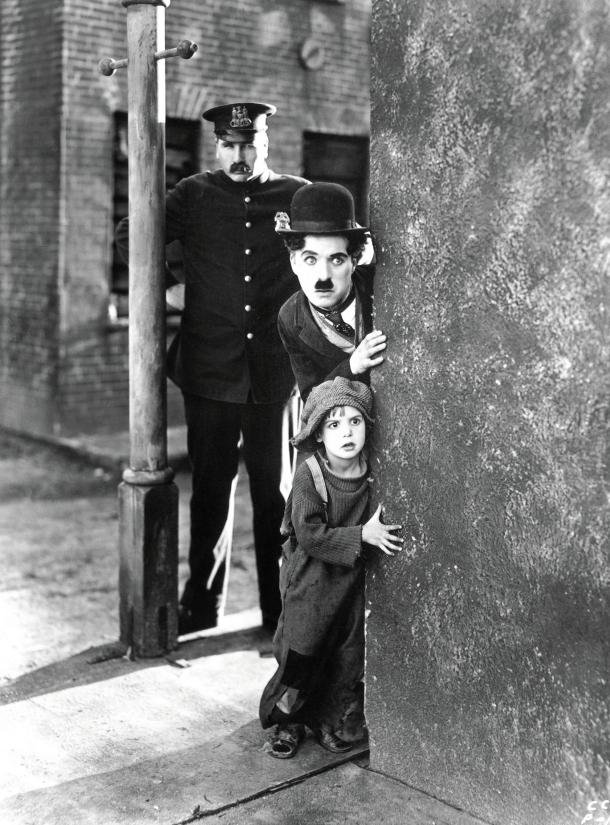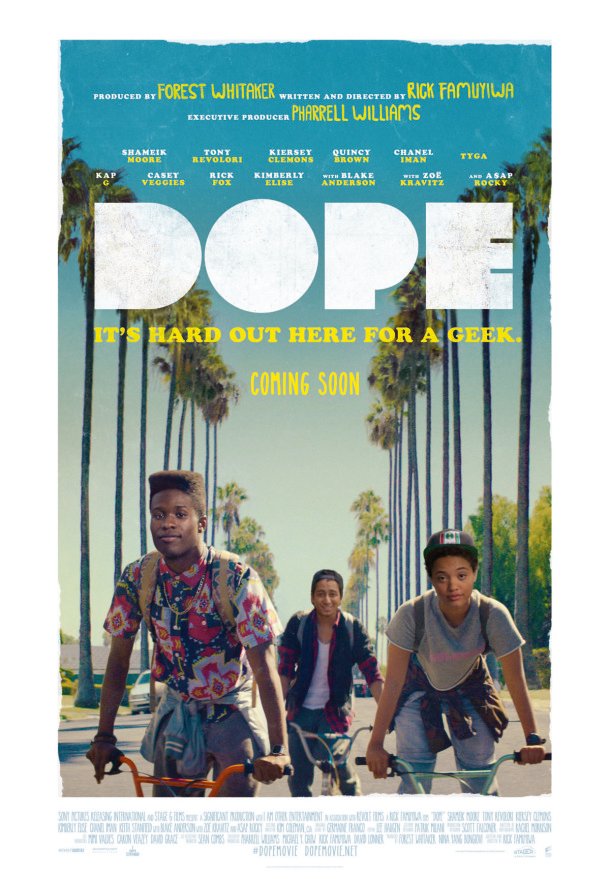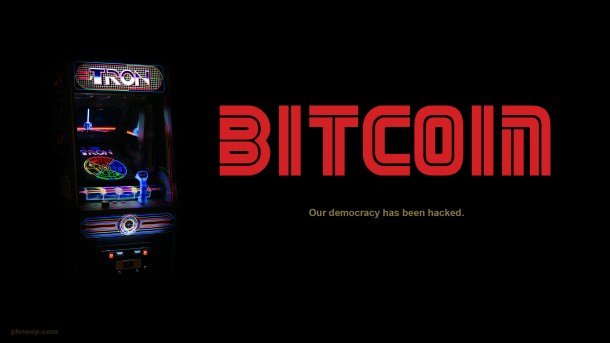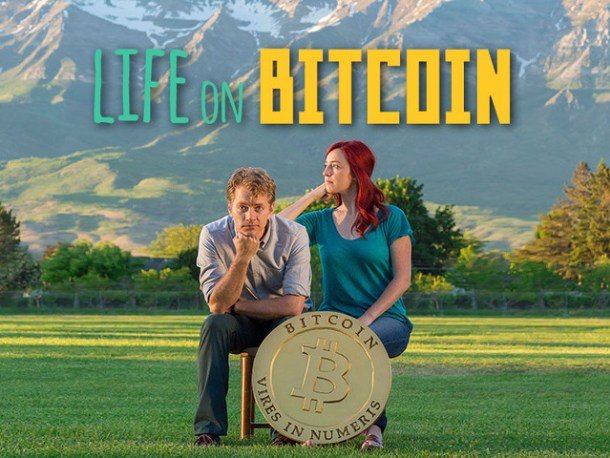Bitcoin and cryptocurrencies: a journey through his appearance in film and television

Since the Lumière brothers publicly projected the exit of workers from a factory in Lyon in 1895, France began the history of cinema, until reaching what we know today. With different genres, motives and themes, cinema has earned the title of "seventh art". It has even become a mass media, although it has also been distributed to smaller groups depending on intentionality or what is narrated in the film. We have the king of the Hollywood pop industry in the United States, the increasingly popular Bollywood in India, the popular animation cinema; but also the independent cinema, the documentary and the experimental.

To the big screen, some time later, television was added, another means of mass communication. Of course, the arrival of the Internet was a revolution for the cinema and TV since we can now watch movies and television series on our phones, computers and tablets. But beyond formats or media, movies and series are in our day to day, in references in our networks and conversations with friends. Thus, Andrew Tudor considers films as "models of culture".
Both cinema and TV have had a lot of involvement in society, many of these audiovisual productions seek to represent real world events, or rely on it to create a story and tell us about it. Cinema and television can influence fashion, thinking and sometimes the way of seeing things, as can happen with art in general; and there is even cinema and television programs with political ends, for example. It is more likely that a person remembers more the scenes of the movie of the Titanic or Leonardo DiCaprio, than what he knows about the historical events themselves.
Essentially, the series and films pose a space in which the viewer can identify or relate to their reality, individually and collectively. The case of technology or advances in this field does not escape the eye of the directors and audiovisual producers. For this case, we will take a walk through those series, films and programs in which Bitcoin and the cryptocurrencies have had a role -protonated or not- with which they have captured the attention of many.
CRIPTOMONEDAS AND BITCOIN AS PROTAGONISTS
Although there are not many, since the little time that has passed since the creation of Bitcoin, there are already some series and films in which the theme FinTech, cryptocurrency or blockchain are stars. Keep in mind that many of these films have only been presented at festivals and have not enjoyed widespread, but does not mean they are not quality works.
For 2015, the second edition of the Bitfilm Festival was held, which awarded the best cinematographic productions about Bitcoin and blockchain technology. Among the titles were, What is Bitcoin? and Bitcoin Properly, among other short films closer to documentaries such as Bitcoin in Uganda, Bitcoin: Buenos Aires or Declaration of Bitcoin's Independence.

Also in 2015 DOPE came to light a film that if it does not seem very related to Bitcoin, actually tells the story of a young African-American man from California in the United States who, due to several events, gets stuck in a situation with drugs which comes out using bitcoins and the Darknet, "in the best Silk Road style". At the beginning, the main character says: "I just read that money as we know it has died. Soon the world will only buy and sell products using bitcoins. " The film also explores other themes such as clamoring and racism in society. In fact, DOPE also had the peculiarity that, when released, the entry could be paid with cryptocurrencies.
Later, Crackle - a service similar to Netflix - announced for 2016 a television series called "StartUp", that although it does not revolve around Bitcoin, its protagonist is a cryptocurrency called GenCoin, which was created under the same ideals that it raised Satoshi Nakamoto. Starring the actors Adam Brody and Martin Freeman, tells the story of a business idea that, in the pursuit of expansion and adoption, ended up involving criminals of Haitian origin and causing an investigation of the FBI, although this was not the intentions of the business initially.
Already for this 2017 the premiere of Banking on Bitcoin, a feature film that covers the history of Bitcoin, was scheduled, and narrates a kind of ideological battle in progress between extreme supporters of utopia and popular capitalism, together with the stories of personalities of the ecosystem as Erik Voorhees (ShapeShift), Charlie Shrem (Bitcoin Foundation), Barry Silbert (Digital Currency Group), Cameron and Tyler Winklevoss (Gemini), Alex Winter (actor and director), Nathanial Popper (journalist), and some other personalities. Something that could illustrate a bit the political movement after the first cryptocurrency and the decentralized ecosystem.
SECONDARY PAPER BUT NOT LESS GLOSSARY
In this section, as the crow flies, we will take some popular series in which Bitcoin, cryptocurrency or blockchain do not have the main role, but in small appearances, mentions or parallel themes have shone and captured the attention of viewers.
We bet you would not expect that in a series like Family Guy (Family Guy), which tells the day to day of a dysfunctional family, you would find even a mention to bitcoin, but yes, bitcoin begins to invade the daily spaces capturing the curiosity of the common citizen. In this episode, Peter suggests the cryptocurrency as an alternative to improve the family economy.
In this line, the legendary animated series The Simpsons is not far behind: in there bitcoin is treated perhaps as a risky investment, since Krusty, the clown, had no luck in this market; but knowing the series we know that the clown does not have very good luck in general.
Among others to glances, highlights the House of Cards, with a bitcoin appearance for money laundering in episode 2 of the second season. While in a lesser known, called Almost Human, a series of science fiction, it speaks of a Bitcoin Stick.

Beyond a nod to bitcoin, we have our eye on another popular series where it appears multiple times: Mr. Robot, in which the main argument seems to be the so-called "hacktivism". There we are told the story of Elliot Alderson, a computer engineer who works in a cyber security company, which ends up joining a group of hackers to destroy a global capitalist corporation called E-Corp, transforming it into a general fight against the centralized systems.
In fact, already more advanced the series, having problems with the financial system begins to be the debate between the decentralized cryptocurrencies and the counterpart of E-Corp, a centralized currency that has the backing of the government.
Finally in this section, we must say that soon we will have an entire episode related to bitcoin of the most geek series of the moment: The Big Bang Theory. Chapter 9 of the 11th season is called "The Bitcoin Entanglement" and is scheduled for the end of November this year.
DOCUMENTARIES AND SOMETHING ELSE
Perhaps the most extensive in audiovisual productions in relation to Bitcoin are the documentaries. This more realistic approach is one of the first approaches that were given culturally, as it were, to Bitcoin and cryptocurrencies.
One of the most well-known documentaries about Bitcoin is Torsten Hoffmann's "The End of Money As We Know it", in which we will not only know a little more about the first cryptocurrency and how it can be revolutionize financial systems or become an alternative, but money and its history to this day. It is narrated through different interviews to various characters of the ecosystem, global finance and programmers. Could Bitcoin really be the end of money as we know it?
Secondly, we should definitely not miss The Rise and Rise of Bitcoin by Nicholas Dross. For 2014, the documentary tells the life of Daniel Dross, an enthusiastic Bitcoin programmer during the initial years of technology, and his trip around the world, for which he interviewed personalities related to cryptocurrencies, such as the Winklevoss twins, Mark Karpeles, Gavin Andresen, Charlie Shrem, Brian Armstrong or Roger Ver. This production also deals with political issues related to the emergence of Bitcoin, as well as its association with illicit uses.

So we come to the daring couple who will seek to live and travel the world for a year with only bitcoins; that is, yes, they should do the shopping, pay hotels, transportation, clothes and everything they need to live only with BTC. Called Life on Bitcoin, this documentary began to be filmed from 2013, and to take the project out the couple asked for collaboration.
Next, The Bitcoin Phenomenon by Bhu Srinivasan (2014) reflects, through the words of the interviewees, the history, characteristics and the disruptive potential of the phenomenon in the financial and political systems of today. Meanwhile, to take a look at the world of mining through The Bitcoin Gospel, is not bad. This latest documentary by Hans Busstra also addresses the differences between fiduciary currencies and decentralized money.
Finally, from those closest to the illicit uses, and the Darknet, highlights the film Deep Web, which tells the story of the famous case of Ross Ulbricht and its extinct market of illegal items online, Silk Road, which was one of the first to accept BTC. On the other hand, Ulterior States, by Tomer Kantor, gathers enriching testimonies of hackers, activists and important names of the Bitcoin ecosystem, emphasizing the power of the network in all its aspects.
In parallel, audiovisual productions in relation to cryptocurrencies, in addition to narrating the different areas and events, also seek to be a means to reach the common person in an easy and simple way. Here highlights the Trust Disrupted series, from the Techcrunch channel. This series focuses on the technology behind the cryptocurrencies, and includes several interviews with different actors of relevance in the blockchain ecosystem.
With the same educational purpose, appears the Japanese show BitGirls, a program of "regular" contests, which seeks to add learning to the audience about the crypto-world.

Finally, in addition to being the theme and motif of the different films, documentaries, series and appearances in each of these genres, Bitcoin and the cryptocurrencies have also served to finance projects of the seventh art. Just in September of this year, a Colombian filmmaker announced that she would shoot the first film financed with Monero. In the same way, in September 2016, "The Pitts Circus" aspired to be the first film financed with Ethereum.
It is clear that in these few years since the birth of Bitcoin, the subsequent birth of other altcoins together with the adoption of blockchain technology for almost any industry, has also had an effect on art, in this case the audiovisual.
At the beginning we talked about the fact that art can be a reflection or representation of reality, and in the case of Bitcoin and cryptocurrencies it is not different. With this tour we could see that these technologies can be seen as threats, as alternatives, as money, as a good of value, as an opportunity, etc. The visions go from one side to the other between the positive-useful, and the negative-risky. Many of these cases simply expose from the everyday how to bring knowledge and adoption, but others relate the potential, and its possible impact on the present and future.

The value of a man should be seen in what he gives and not in what he is able to receive.
- Albert Einstein
true